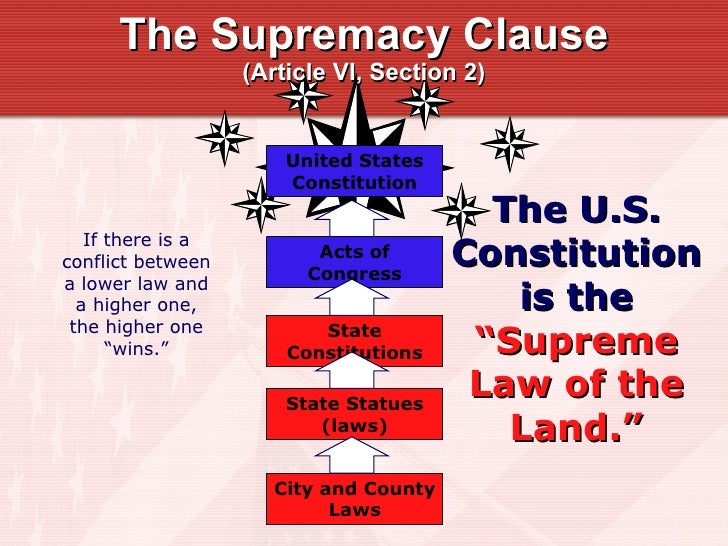State Laws and the State Constitution are Supreme

What is State Law?
State law is a body of law that is enacted by state legislatures and enforced by state courts. Each state has its own set of laws that govern everything from criminal conduct to traffic regulations. These laws are created to protect the welfare of the citizens of the state and to maintain order within the state.
What is the State Constitution?
The state constitution is a document that outlines the framework of government and the rights and responsibilities of citizens within a state. Each state has its own constitution, which is the supreme law of the state. The state constitution defines the powers of the state government and guarantees certain rights to its citizens.
How do State Laws and the State Constitution work together?
State laws and the state constitution work together to create a system of laws that govern the state. The state constitution establishes the framework for the state government and establishes the state's fundamental laws. State laws are then enacted by the state legislature and enforced by state courts to ensure that the state constitution is upheld.
Expanding on the Keyword: State Sovereignty
State sovereignty is the concept that each state has the power to govern itself and make its own laws without interference from the federal government. The Tenth Amendment to the United States Constitution states that any powers not granted to the federal government are reserved for the states. This means that the federal government cannot interfere with state sovereignty, and state laws and the state constitution are supreme.
The Importance of State Sovereignty
State sovereignty is important because it allows each state to tailor its laws to the specific needs of its citizens. Each state has unique economic, social, and cultural characteristics that require unique solutions. State sovereignty allows each state to address these issues in a way that is best suited for its citizens.
The Limitations of State Sovereignty
While state sovereignty is important, it is not absolute. The federal government has the power to regulate interstate commerce, national defense, and other matters that are essential to the well-being of the nation as a whole. In cases where state law conflicts with federal law, federal law takes precedence.
Advantages and Disadvantages of State Sovereignty
Advantages
- Allows states to tailor laws to the specific needs of its citizens
- Encourages competition between states to create more effective laws and governance
- Protects states from federal overreach and interference
Disadvantages
- Can create disparities between states in terms of laws and protection of rights
- May lead to conflicts between states over issues such as taxation and regulation
- Can create confusion and complexity for individuals and businesses that operate in multiple states
Conclusion
The supremacy of state laws and the state constitution is a fundamental principle of the United States Constitution. State sovereignty allows each state to govern itself and make its own laws without interference from the federal government. While state sovereignty has advantages and disadvantages, it is an essential part of our system of government that protects the welfare of citizens and maintains order within the state.
FAQ
What is the Supremacy Clause?
The Supremacy Clause is a provision in the United States Constitution that establishes the supremacy of federal law over state law. This means that if there is a conflict between federal law and state law, federal law takes precedence.
Can a State Law be Overturned by the Federal Government?
Yes, a state law can be overturned by the federal government if it conflicts with federal law. The federal government has the power to regulate interstate commerce, national defense, and other matters that are essential to the well-being of the nation as a whole.
What is the Tenth Amendment?
The Tenth Amendment to the United States Constitution states that any powers not granted to the federal government are reserved for the states. This means that the federal government cannot interfere with state sovereignty, and state laws and the state constitution are supreme.
Can a State Constitution be Changed?
Yes, a state constitution can be changed, but the process for doing so varies by state. In most cases, changes to the state constitution require approval by the state legislature and a majority vote of the citizens of the state.
